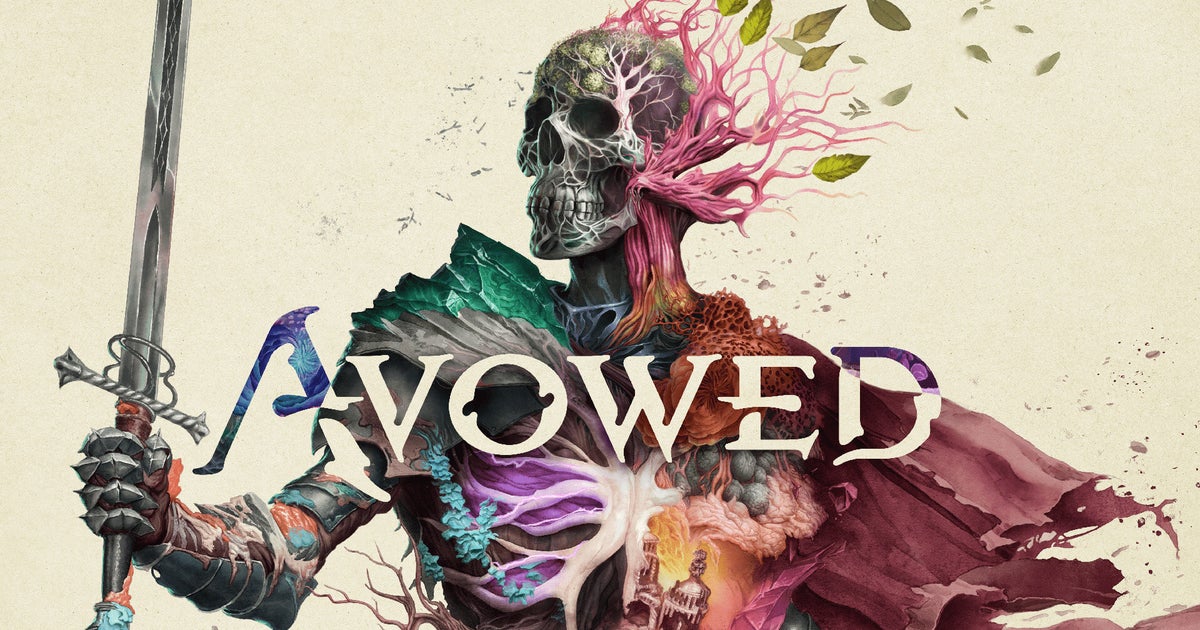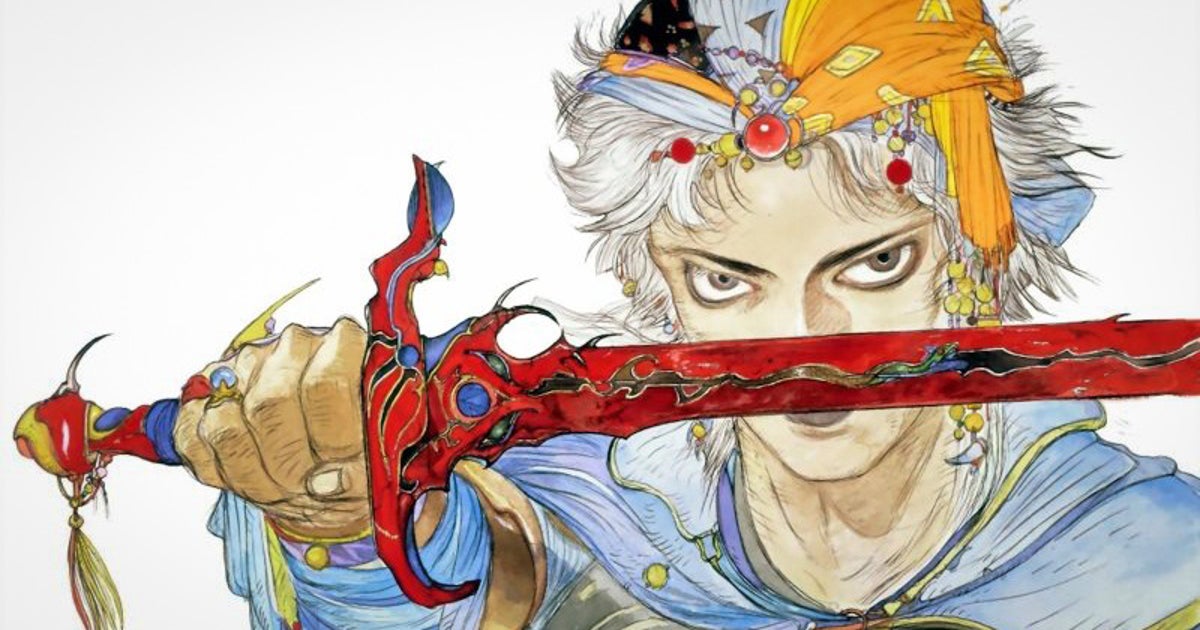[ad_1]
How is it that 2023 can have been one of the best years in memory for games but also one of the worst years in memory for games, and for the gaming industry. I can’t balance this equation – I’ve been trying all year and it gives me a headache.
We should be talking about 2023 as one of the years that will go down in history for games, like 2007 did. We’ve had Baldur’s Gate 3, Zelda 2 (Bertie that is not what it’s called), Cocoon, Alan Wake 2, Banished Vault, and – genuinely – so many more. We’ve been giddy all year at Eurogamer at the relentless quality on show. We ought to be celebrating now during this end of year period, and we will celebrate. We can’t do that alone, because there’s another story we cannot ignore: layoffs.
To give you an idea of how dominant the topic has been, I’m going to do something a little experimental. I’ve looked through Eurogamer and pulled out (nearly) all the stories we’ve written about layoffs during the year, and I’m going to list them all below. It’s a long, long list but I need you to see it. I need to remind you how big the issue has been.
Let’s reconvene underneath.
- 15th Dec – Embracer layoffs hit 3D Realms and Slipgate Ironworks
- 14th Dec – Larian boss’ TGA speech references new Wizards of the Coast layoffs
- 6th Dec: Jumplight Odyssey dev League of Geeks lays off half of team
- 6th Dec: TinyBuild closes internal studio Hakjak (Pigeon Simulator)
- 5th Dec: Embracer layoffs hit Insurgency dev New World Interactive
- 5th Dec: EA layoffs hit EA Sports WRC dev Codemasters
- 4th Dec: Fae Farm dev Phoenix Labs’ has a second round of layoffs
- 28th Nov: Embracer layoffs hit Chorus dev Fishlabs
- 28th Nov: Embracer to close TimeSplitters dev Free Radical
- 16th Nov: Sega threatening unionised staff with layoffs early next year
- 16th Nov: Embracer says 900 employees were laid off in previous financial quarter
- 15th Nov: Humble Games announces layoffs
- 14th Nov: 505 Games parent company Digital Bros to lay off nearly a third of workforce
- 14th Nov: Amazon lays off 180 people from games division
- 10th Nov: Unity likely to announce layoffs early 2024
- 9th Nov: Warframe developer Digital Extremes confirms layoffs
- 7th Nov: Ubisoft layoffs hit Montreal VFX studio and global IT team
- 31st Oct: PlayStation layoffs hit Bungie
- 24th Oct: PlayStation layoffs hit Media Molecule
- 22nd Oct: PlayStation layoffs hit Visual Arts
- 19th Oct: Embracer layoffs hit Pinball FX maker Zen Studios
- 17th Oct: Epic Games layoffs hit Bandcamp staff
- 17th Oct: Frontier layoffs as F1 Manager struggles
- 5th Oct: Telltale layoffs reportedly claim most of Wolf Among Us 2 team
- 5th Oct: EA ends contracts with/lays off Dragon Age QA testers who unionised
- 4th Oct: Amazon layoffs hit Twitch again
- 29th Sep: Epic Games layoffs hit Fall Guys developer Mediatonic
- 28th Sep: Epic Games laying off 900 employees
- 28th Sep: Sega cancels Hyenas, Creative Assembly faces layoffs as a result
- 25th Sep: Roblox lays off staff in hiring team
- 20th Sep: Embracer layoffs hit Baldur’s Gate: Enhanced Edition developer Beamdog
- 20th Sep: Embracer layoffs hit Tomb Raider developer Crystal Dynamics
- 15th Sep: Immortals of Aveum studio Ascendent lays off 40 employees after poor sales
- 23rd Aug: EA studio BioWare lays off 50 employees, including senior writers
- 2nd Aug: Callisto Protocol dev Striking Distance lays off 32 employees
- 26th Jul: Third round of CD Projekt Red layoffs
- 20th Jul: Activision Blizzard lays off 50 employees from eSports division
- 30th Jun: Daedelic closes Gollum studio, laying off 25 employees
- 29th Jun: Pokemon Go developer Niantic laying off 230 staff
- 27th Jun: Season developer Scavengers lays off half its studio
- 28th Jun: Layoffs at EA BioWare as SWTOR dev taken elsewhere
- 13th Jun: Embracer announces “comprehensive restructuring program” – layoffs will continue until March 2024
- 2nd Jun: EA guts mobile games studio Firemonkeys
- 1st Jun: CD Projekt Red layoffs as Gwent dev ended
- 31st May: Take-Two lays off 30 at Civilization developer Firaxis
- 23rd May: Sega lays off 121 at Company of Heroes developer Relic
- 20th May: Crypt of the Necrodancer dev Brace Yourself Games lays off half its staff
- 15th May: CD Projekt Red layoffs at Molasses Flood following Witcher spin-off reboot
- 14th May: Deviation Games reportedly lays off 90 staff from PlayStation-backed project
- 10th May: Ubisoft customer service lay-offs
- 3rd May: Third round of Unity layoffs to affect more than 600 jobs
- 20th Apr: Facebook/Meta layoffs hit Lone Echo developer Ready at Dawn
- 5th Apr: Amazon lays off 100 employees from games division
- 29th Mar: EA announces layoffs to six percent of company, or roughly 750 jobs
- 20th Mar: Amazon announces 9000 more layoffs, including 400 from Twitch
- 17th Mar: Layoffs reported at Team17
- 14th Mar: Facebook/Meta announces 10,000 layoffs as part of “year of efficiency”
- 7th Mar: Take-Two layoffs to affect Private Division publishing label
- 28th Feb: EA lays off 200-person Apex Legends QA team
- 20th Jan: Google to axe 12,000 jobs
- 19th Jan: Riot Games lays off 46 employees
- 18th Jan: Xbox owner Microsoft axes 10,000 jobs – Bethesda, Halo studio 343 Industries, and Gears of War developer The Coalition affected
- 19th Jan: Unity lays off nearly 300 staff
Now, it’s important to note that this list is not definitive. I’ve probably missed something somewhere and I know we as a site haven’t covered every single layoff in the industry. But that’s OK. It’s more to capture your attention.
It’s also important to understand that the scale of the layoffs varies wildly from company to company. In some cases, a handful of people have been laid off, whereas in the most extreme cases, at the biggest companies, thousands of people have gone. Thousands. You’ll also see there are several companies systematically working through their catalogue of studios and restructuring them. And unfortunately, that work is going to continue until the end of their financial years, so until the end of 31st March 2024.
This calendar year alone, though – and I realise we’re not done yet – there have been more than 9500 games industry workers laid off, according Games Industry Layoffs (which as I understand is one person attempting to track it all). Compared to last year, that’s a nearly tenfold increase, just in case you’re wondering how it all stacks up. That 2022 number comes from an excellent report on Polygon. And where there are layoffs, of course, there are also companies refusing to hire for the same reasons they’re letting people go: to save money. This means there’s a flood of talent eager to be absorbed by the industry. But will it? We don’t yet know.
 Gameplay Trailer – HYENAS
Gameplay Trailer – HYENAS
Why is this happening? And why in 2023, the year that would otherwise beam like a beacon of what games can do and be? How is an industry that is performing so well also apparently imploding?
Obviously, it’s complicated, and there are many factors involved. In some cases, you can quite clearly see the decision and consequence; a game performs badly so a studio lets people go, or as in Sega’s case, with Hyenas, a huge project is canned so people are let go. In other cases, though, it’s harder to directly see why it’s happening, almost as though the reasons are deliberately obscured in that boardroom way, so companies don’t look like they’ve done anything wrong. But it doesn’t take long to discover that really, they’re all saying variations of the same thing.
The root cause of so many of these layoffs is overspending. It’s also often, ironically, overspending linked to success. Gaming boomed during the pandemic when most of us were locked up at home with nothing to do, so companies saw currency signs in their eyes and jumped in on it. But now that COVID is something we’re living with, things have changed. And there are other important elements at work like the cost of living crisis and conflicts and global instability. That’s what the gaming business will have you think anyway. And it’s not wrong, but it’s a way of spinning financial results that makes it look like the world’s fault and not a company’s for overspending in the first place.
The issue is picked apart in much more detail by a flock of analysts in a detailed piece on GamesIndustry.biz. There are a range of opinions. Some talk about the expand-and-contract normalness of what’s going on, while others highlight the availability of cheaper borrowing during the pandemic – and a period of historically low interest rates – that fuelled the rampant spending and likely inflated some companies’ valuations, and that lead to loans that were cheap to take on but were liable to get a lot more costly when interest rates rose.
But there are some more unexpected opinions too, such as how one analyst thinks senior game execs have been inspired by Elon Musk’s brutal halving of Twitter’s workforce, seeing how he kept the business running (debatable) with fewer salaries to pay. I also find the suggestion of companies copying each other interesting, and their rushing to make cuts because other companies are making cuts, for fear of being left behind if they don’t. It’s felt a lot like that this year – that or companies are seizing the opportunity to get bad stuff done while everyone else is, so they don’t stand out.
Then there’s this quote from Kantan Games CEO Serkan Toto: “There is also the phenomenon that often CEOs think 15 percent to 20 percent of their people are redundant anyway at any point in time.”
Wow.
It’s in statements like that that I see a big issue being overlooked in all of this, and it’s the dehumanisation of the people affected by it. Note how companies refer to percentages rather than counts of people affected by layoffs. EA saying it’s laying off six percent of its workforce almost doesn’t sound that bad perhaps. Six is a small figure so it might seem negligible if you’re just glancing at it. But when you realise EA is talking about 750 people losing their jobs, it feels completely different.
The danger whenever we talk about large numbers of people affected by something is the individual experience gets overlooked. We stop putting ourselves in the position of the people affected and look at it in terms of cold numbers instead. We distance ourselves from the fear and anxiety and humanity of what they’re going through.
Polygon’s piece does a great job of reminding us of the human cost by talking to several people affected by the layoffs. We hear about sudden all-hands meetings being called and the unexpected shock of the announcements. Then we get a feeling for the discombobulation afterwards as people scramble to deal with the news, and all the uncertainty and vulnerability it pipes into their lives. Some people have been applying for months and months, to hundreds of vacancies, to no avail. What do they do now?
What must it have been like to be one of the veteran BioWare writers, who’d given decades to the company, only to be unceremoniously laid off – and without adequate severance for their tenure too? What must it have been like to be one of the Free Radical team watching the doors to the studio close for the very last time? There are so many examples I could give. It’s scary. And it’s infuriating to see people’s lives and careers gambled with like this.
That’s why people are protesting outside The Game Awards, and why people in the industry are fuming on social media about 2023: they’re angry people can be treated this way in an industry apparently doing so well. The same year Epic announces so many many layoffs, it celebrates new player milestones in Fortnite. The same year Microsoft announces so many layoffs, it spends $68.7bn on Activision Blizzard. It’s hard to watch, and it makes the people affected look like disposable assets on companies’ paths to fortunes. Those successes have come at a high human cost. So yes, some great games came out in 2023, but I’ll say it again: you can’t talk about 2023 without also talking about layoffs.
[ad_2]
Source link



